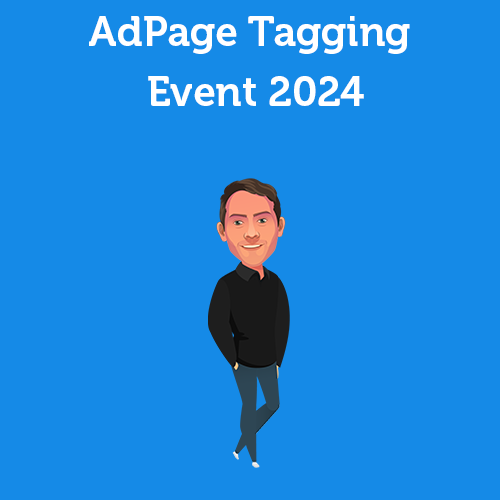Menu
Table of contents
By now the counter stands at 200 online marketing related blogs and I have learned an awful lot from all that blogging. In this article I tell you what my 10 most important lessons learned are.
Lesson 1: Make sure you enjoy writing blogs
Lesson 1 is by far the most important of these 10 lessons. After all, if you don't enjoy writing content, you're never going to stick with it.
I often get told that people don't enjoy blogging. But often that is not true. They do enjoy blogging, but they don't enjoy it now because they don't understand it, can't do it or they don't have the time for it.
And if you tackle those three, entrepreneurs often like it anyway. Especially when they see that blogging gives them a lot. Consider:
- New leads
- Better findability
- More subject matter knowledge
- Content they can use on the other channels as well.
Personally, I find blogging incredibly fun to do. During blog number 201, I have as much fun as I did with blog 1, which also makes it effortless.
Except for the article 45 SEO tools in a row [Free & Paid]. In fact, I spent 10+ hours on that one, because I had really misjudged the input there.
But I plowed myself through that, too. So sometimes it's just a matter of pushing through.
Lesson 2: Consistency is key
Writing 1 blog will not make your website more findable. Neither will writing 1 blog per quarter.
Therefore, make sure you blog often and that there is consistency. This is important for your relationship with Google, because you want the search engine to get as much fresh content as possible.
But this is also important for yourself. After all, if you schedule every Friday afternoon to blog, that will be your regular time. You won't neglect it so easily, and you'll make sure you get to write every time.
Make sure blogging becomes a habit. Just like cleaning up your house or cleaning your car. Something that is automatic and that you don't have to think about.
When you are at that level, you will find that it will come easily to you and it will no longer take any effort on your part.
And that consistency pays off, the screenshot below from my Google Analytics shows.

Lesson 3: Always start with SEO
Never, ever just start writing. That is one of the biggest mistakes you can make. Think carefully beforehand about what you want to write about, what words to use, what headings to use, etc.
This is also called on page SEO. So you will always have to start with a brief keyword analysis in which you are going to discover which words are being used in Google and which are not.
But it doesn't stop at figuring out keywords. In fact, there are an awful lot of free tools like Answer The Public or Also Asked that can help you figure out the headings and (sub)topics you're going to cover in your blog.
When you don't start with SEO, you are often an unguided projectile. You then don't know exactly what to write about what the common thread should be and where and when to stop.
In addition, it could also just mean that by choosing the wrong words you won't be findable in Google. And that would be really terrible. All your work for nothing. No visitors and no leads. And that's what you do it for in the end.
Lesson 4: Sometimes intentionally omit SEO
What if you came up with a fun topic, something you'd really like to write about? For example, the 10 most important lessons you learned after writing 200 online marketing related blogs ;).
Before I started this article, of course, I researched the best keywords. But what turns out? There are virtually no relevant keywords for my blog.
Does that mean you shouldn't write the article then? Of course not! If you like the topic, write something about it. Not everything has to be written perfectly for Google.
In fact, we go back to lesson 1 for a moment: Make sure you enjoy writing blogs. That can sometimes mean deliberately omitting SEO (and therefore tip 3) in order to still get your creativity out there.
Lesson 5: Think out topics in advance
Lesson 5 is one that has helped me tremendously. You see, I made an incredibly long list of blog topics 2 years ago.
To this day, I still get blog topics from there that I then use for my blogs. In fact, I personally find that for me, coming up with a topic is the hardest part.
Especially when, like me, you blog every Friday afternoon. You've had a rough week and your creativity is in short supply. So what should you write about?
If you have a nice list of topics, no problem. You scroll through too list and pick out the topic you feel good about at that moment.
Handy right?
And now you may be wondering, "Daniel, why don't you blog on Monday mornings, for example? Well, blogging is important to me, but work for clients is even more important. So my best hours go to clients.
In addition, while I may not be good at coming up with blog topics on a Friday afternoon, I am extremely fast and good at writing blogs.
Lesson 6: Prepare your blogs
You've probably heard of writer's block. In other words, a kind of temporary blockade that keeps you from getting anything out of the pen.
In that case, it is very important that you prepare your blogs. In fact, I don't do that on Friday, but at the very beginning of the week.
Then I do the keyword analysis. Then I come up with all the headings and set up the skeleton of my blog. I add the H1s and H2s in Word ahead of time and make sure that on Friday all I have to do is write - and not think.
So I open my Word file on Friday afternoon and it's just a fill-in-the-blank exercise. Nice and easy.
This way of writing helps me so much that I even wrote a blog about it: Writing a blog and getting it to score in Google is done with this formula.
In this article, I explain exactly how I properly prepare a blog, how I then write it, post it and submit it to Google.
Lesson 7: Update your blogs periodically
I learned this lesson at the end of 2020. I noticed that a few of my blogs had dropped in Google and thus I was getting fewer visitors.
I opened the blogs in question and saw that they were some time old, could be updated and that I was still using my old blog format there. In other words, it was time for a refresh.
After up-dating the blog, expanding it and refreshing the format, I saw that the blogs soon rose again in Google and my visitor numbers increased again.
So don't just think about your new content, pay attention to your existing content as well. After all, that can also be a goldmine.
And since it's better to blog after your 200th than after your 3rd blog, so it's good to periodically tackle old content.
Lesson 8: Write at times that work for you
I briefly talked about this earlier in this article. But it is very important that you start writing at times that work for you.
I am really a morning person. That's why I write especially well in the morning and in the afternoon. Evenings are really not for me. Then I'm not as creative and I've had my best time.
For you, it might be very different. Maybe you can't get out of bed in the morning and evening hours are your golden hours.
It's different for everyone. So how do you find out what works best for you? By simply testing it.
Lesson 9: Know what your worst blog will ever be
When I pull out my first blog, I always smile a little. The quality, writing and format have all improved so much since then.
I took steps forward. But back to the lesson briefly: know what your worst blog will ever be. After all, that will be the very first one you write.
By writing, by blogging and by just doing it, you get better and better. You learn from each article, you get faster and it all gets easier.
So don't doubt yourself or your blog, but go for it!
Lesson 10: Quality + quantity are a golden combo
The last lesson, is certainly not the least important lesson. When we talk about blogs, quality and quantity are both important.
You want to publish as many good blogs as possible. And is that a set number per week, month or per year?
No. In fact, there is no ideal quantity of blogs.
Do you have to give up too much to write blogs every week?
Then start with once a month at first. But scale that up once it becomes easier for you and once your blogs improve. Don't just focus on quality, but definitely go for quantity as well.











Written by: Daniel Kuipers
Daniel is the founder of Online Marketing Agency. He constantly scours the Internet for the latest gadgets and tactics and blogs about them in understandable language. Well, sometimes.